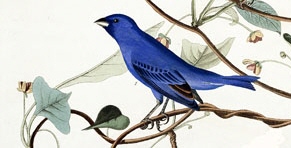Twitter announced its new Terms of Service yesterday. One big issue deals with copyright ownership. This is one of the perennial questions in the law of social media: “who owns the user-created content?” Twitter nods to this issue when it states that “Twitter is allowed to ‘use, copy, reproduce, process, adapt, modify, publish, transmit, display and distribute’ your tweets because that’s what we do. However, they are your tweets and they belong to you.”

That’s all well and good. And by not being too grabby, Twitter avoids stirring up a brouhaha like Facebook did earlier this year for a little while when it claimed a very broad license in users’ content. In that situation, some pointed out that Facebook could use your content forever, even after you deleted your account. No doubt Twitter was motivated by an aversion to controversy of this sort when it decided to not claim a perpetual license.
But is Twitter being too cautious? The license it claims in the new terms of service does not specify a duration. That’s user-friendly, because such a license is probably terminable at will by the user. Under cases like Walthal v. Rusk, 172 F.3d 481 (7th Cir. 1999), Twitter would no longer have the authority to use, copy, reproduce, etc. the tweets of a user that no longer permitted such use be made. Deleting one’s account would be a good indication that such a license was being revoked. And the user could follow up with an express statement to Twitter that the license no longer exists.
Still all well and good. But let’s look at the “ecosystem” that has been nourished by the Twitter API, and which Twitter bolsters in its new terms of service. (“We encourage and permit broad re-use of Content. The Twitter API exists to enable this.”)
Third party developers can build apps that, among other things, cache users’ Tweets and make them available for mashup, organization, etc. and redisplay. These acts by the third party developer are an exercise of rights of the copyright holder, i.e., the individual Twitter user. The terms of service allow Twitter to sublicense these rights to the third party developer, so there is no problem so long as the individual Twitter user is under the terms of service.
What happens, though, in the situation we were just discussing where the individual user revokes the license to Twitter? These cached copies out there in the possession of third party developers all of a sudden become unauthorized, because Twitter no longer has the sublicensable right to allow the tweets’ copying and redistribution by others.
In such a situation, are third party developers who continue to display the content left blowing in the wind, as infringers of erstwhile Twitter users’ copyright rights?
Notice sign photo courtesy Flickr user szlea under this Creative Commons license.



